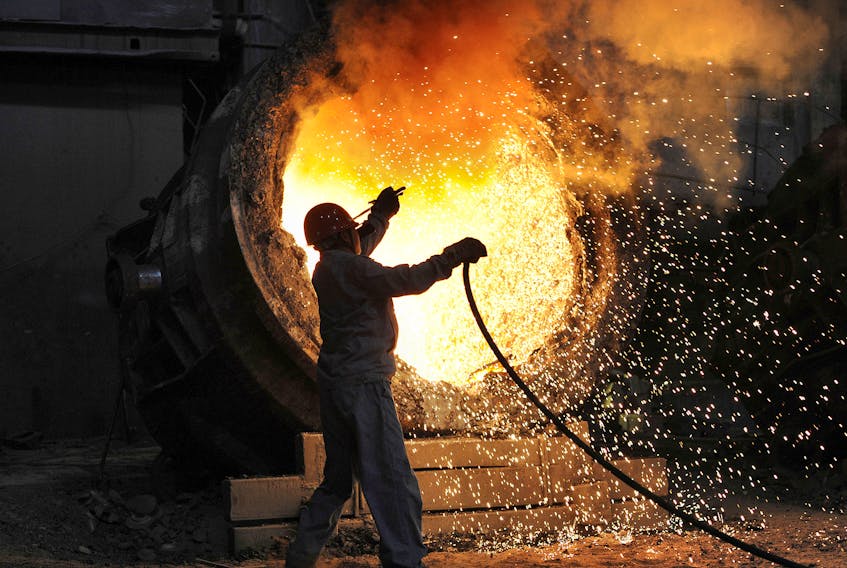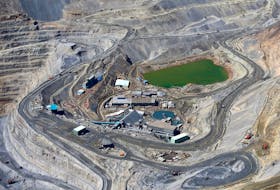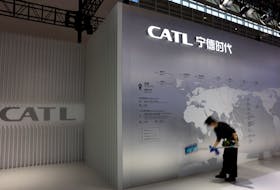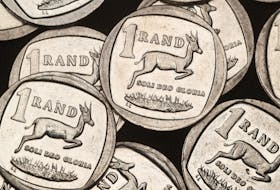BEIJING, July 1 (Reuters) - China's factory activity unexpectedly shrank in June as domestic and export demand faltered, a private sector business survey showed on Monday, pointing to further strains on its vast manufacturing sector as the Sino-U.S. trade war drags on.
The downbeat readings suggest the world's second-largest economy is still losing steam despite a flurry of support over the past year, underlining an urgent need for more stimulus measures.
Leaders of the United States and China agreed at the G20 summit in Japan over the weekend to restart trade talks, giving investors some cause for optimism, though analysts say the lack of any substantive agreements from the meeting mean China's economic woes are likely to persist.
The Caixin/Markit Manufacturing Purchasing Managers' Index (PMI) for June came in at 49.4, the worst reading since January and below economists' expectations of 50.0.
It was the first time in four months that the keenly-watched index has fallen below the neutral 50-mark dividing expansion from contraction on a monthly basis.
The survey finding was in line with an official gauge on factory activity published on Sunday, which showed manufacturing contracted at a faster-than-expected pace.
"China's economy came under further pressure in June," Zhengsheng Zhong, Director of Macroeconomic Analysis at CEBM Group, wrote in a note accompanying the data.
"It's crucial for policymakers to step up countercyclical policies," he said.
Factory output and new orders both fell for the first time since January, with some companies reporting they had halted production lines because of the trade dispute.
Business confidence dropped to the lowest in over seven years as a result, and manufacturers shed jobs for the third straight month.
The Caixin survey's new orders sub-index - which measures new work both from home and abroad - fell sharply to 48.8 from 50.7 in the previous month.
Global fallout from the U.S.-China trade war is building as the dispute intensifies and enters its second year, disrupting supply chains, rattling financial markets and discouraging many companies from making new investments.
Tensions between the world's two biggest economies escalated sharply in May, when talks to reach a broad deal collapsed as Washington accused Beijing of reneging promises on reforms. Both sides raised tariffs on each others' goods and the White House threatened even more.
However, Chinese policymakers have been facing considerable weakness on the home front as well.
While tit-for-tat U.S.-China tariffs are expected to hit Chinese export-oriented firms hardest, the PMI survey suggested orders from domestic customers cooled faster in June than new business from abroad.
That's despite a sustained economic support program that began early last year, ranging from higher infrastructure spending to tax cuts to a spate of measures aimed at keeping struggling smaller firms afloat.
While new exports orders shrank, pointing to further factory weakness in the third quarter, the drop was modest.
CEBM Group's Zhong said that may reflect a rush by Chinese companies to ship goods to the United States ahead of any further tariffs. Similar "front loading" kept China's headline export growth fairly resilient for much of last year before they sharply tapered off in the fourth quarter.
With the trade war threatening to grow longer and costlier, many economists believe Beijing will need to roll out more stimulus to meet its 2019 economic growth target of around 6-6.5 percent.
Market expectations are centering on further cuts in the amount of cash banks must hold as reserves and even higher fiscal spending, though some China watchers also expect the central bank to cut one or more of its key policy interest rates to reduce corporate borrowing costs.
(Reporting by Yawen Chen and Ryan Woo; Editing by Kim Coghill)









